Anti-VEGF Treatment
Anti-Vascular Endothelial Growth Factors (Anti-VEGF) are used to treat Wet Age-related Macular Degeneration, Diabetic Retinopathy & other diseases of the retina. The treatment may improve vision in 1 out of 3 people who take it and at least stabilizes vision in most people.
What is VEGF?
Vascular Endothelial Growth Factor is a protein produced by many cells in our body. It helps in repair after injuries and in the production of new blood vessels when our bodies requires these.
why choose
shroff eye centre
for your treatment?
LEADERS IN EYE CARE SINCE 1914
-

NABH ACCREDITED
-

ISO 9001:2015
Accredited -

ZEE HEALTHCARE
LEADERSHIP AWARD -

Radio City Icons
Award -

AWARDED TRUSTED
EYE CENTRE -

Times Health Survery
Top Eye Clinics in
North India & Delhi 
best eye hospitalS
in north india



Millions of
happy patients

Over 40 years
of experience

In Top 3 Eye
Centres of NCR

Internationally
acclaimed retina
team

Advanced
Retina Care
TESTIMONIALS
Don’t just take our word. Here’s what patients have to say about us!

I was delighted to visit Shroff’s Eye Hospital and see that it has been refurbished and expanded in a Spacious and beautiful manner. This well equipped and competently staffed Eye Centre has become a facility of excellence which will be a boon to the people of Delhi. I wish the Shroff Eye Centre the people and saving their eye sight.
Shri. K. R. Narayanan, President of India
(1997-2002), Rashtrapati
Bhawan

I am of firm opinion that Dr. Shroff’s institution is the best eye institution. I am fully satisfied with the care and treatment of my eyes. I had heard lot of praise about this institution, I got the same. I wish all the best for this institution.
Shri. Raj Nath Singh,
Defence Minister of India

This is undoubtedly the finest institution for eyes. Not only is every single staff member highly professional and brilliantly competent, everyone is warm, patient understanding and patient friendly. God bless all of you.
Shri. Prannoy Roy
Founder, NDTV India
Successful retina detachment Surgery in Delhi NCR
Rajiv Miglani
Diabetic Retinopathy ke badiya doctor
Dr. Daraius Shroff
happy patients
Successful retina detachment Surgery in Delhi NCR
Rajiv Miglani
Diabetic Retinopathy ke badiya doctor
Dr. Daraius Shroff
BASED ON 5K+ REVIEWS


mukul giri
We had our Retina Detachment surgery. Dr Shroff is the best retina surgeon and the surgery was done with utmost precautions and results were outstanding.


Bhaskar Azad
Excellent services and great care. The whole staff was very professional and took great care of my eye - I had a retina issue which was resolved completely.


Gauri Jain
Gagan Bhatia sir is the Best doctor in East Delhi for Retina checkup. We are satisfied with his treatment..Very polite and well versed.
How do Anti-VEGFs work?
Anti-VEGF injections help by blocking VEGF in the eye. This causes the abnormal blood vessels start shrinking & stops any further growth of vessels. They also prevent the growth of new, leaky blood vessels. This stabilizes vision in most patients.
Do intravitreal injections hurt?
An eye injection may sound scary, but the needle is very small and the injection is very quick – it’s over in a few seconds! The local anaesthesia ensures that you experience minimal pain or discomfort.
How do Anti-VEGF work?
Anti-VEGF injections help by blocking VEGF in the eye. This causes the abnormal blood vessels start shrinking & stops any further growth of vessels. They also prevent the growth of new, leaky blood vessels. This stabilizes vision in most patients.


Do intravitreal injections hurt?
An eye injection may sound scary, but the needle is very small and the injection is very quick – it’s over in a few seconds! The local anaesthesia ensures that you experience minimal pain or discomfort.
Frequently
asked questions
How many Injections do you need to take?
What eye problems are treated using anti-VEGF medicines?
- Wet age-related macular degeneration (AMD)
- Swelling of the retina called macular edema
- Diabetic Retinopathy
- Retinal Vein Occlusion
What are the names of Anti-VEGFs used?
a) Avastin (Bevacizumab) is an anti-VEGF agent approved for use in colorectal cancer. Ophthalmologists are using it “off-label” in AMD and other vascular conditions for its anti-angiogenic property. When used in the eye as an intravitreal injection, the dose is extremely small. This makes the risk of adverse systemic reactions like gastrointestinal perforation, thrombo-embolic reactions, hypertension and proteinuria, negligible. The use of Avastin is off- label but recent experience with this drug has been encouraging with most patients getting stabilized and some improvements.
b) Lucentis (Ranibizumab) is a FDA-approved anti-VEGF agent. It is a recombinant homogenized monoclonal antibody. Clinical trials with Lucentis have shown not only stabilization but also the improvement in visual acuity in some patients.
c) Eylea(Aflibercept) is newly launched FDA-approved anti-VEGF agent. It is a long acting drug so requires less frequent injections. This reduces the frequent visits. The potential benefit of this drug has been found in AMD variants like polypoidal vasculopathy.
For Intravitreal Eye Injection cost in Delhi NCR, call us today!
How is Anti-VEGF treatment given?
- The eye is numbed with topical anaesthesia.
- Your eye is cleaned to prevent infection.
- A small clip like device may be used to keep your eyes open and eyelids out of the way.
- Our retina specialist injects the drug through the white part of your eye using a very thin needle.
- The injection only takes a fraction of the second. You usually do not see the needle itself.
After the injection you can go home. There are some precautions that you have to observe.
What are the risks associated with Intravitreal injections?
The procedure is relatively atraumatic and the needle used is very tiny. However, as with any procedure, it carries a small risk of post-injection infection, raised or low intraocular pressure, cataract formation, vitreous haemorrhage & retinal detachment.
In case you have a recent history of a cardiac problem, uncontrolled hypertension or severe proteinuria, you may be given systemic anti-VEGF agents instead.
Worried? Speak to the best retina eye doctors in Ghaziabad.
Can Anti-VEGFs reverse vision loss?
Anti-VEGFs stabilise vision in most people. They may also improve vision in one third of the people who receive treatment.
Will I need any other treatment?
This depends on the cause and severity of your macular degeneration or macular edema. Our eye experts will make this decision. You many need other types of treatment such as laser or surgery.
Why block VEGF?
Sometimes, our cells can produce excessive amounts of VEGF. This happens in some retinal conditions, where abnormal blood vessels begin to grow in the eye. These abnormal vessels can damage our eyes and lead to a loss of vision.
Frequently Asked Questions
How many Injections do you need to take?
This is different for every patient. However, multiple injections are often required for complete inactivation of the disease process.

What eye problems are treated using anti-VEGF medicines?
- Wet age-related macular degeneration (AMD)
- Swelling of the retina called macular edema
- Diabetic Retinopathy
- Retinal Vein Occlusion
What are the names of Anti-VEGFs used?
a) Avastin (Bevacizumab) is an anti-VEGF agent approved for use in colorectal cancer. Ophthalmologists are using it “off-label” in AMD and other vascular conditions for its anti-angiogenic property. When used in the eye as an intravitreal injection, the dose is extremely small. This makes the risk of adverse systemic reactions like gastrointestinal perforation, thrombo-embolic reactions, hypertension and proteinuria, negligible. The use of Avastin is off- label but recent experience with this drug has been encouraging with most patients getting stabilized and some improvements.
b) Lucentis (Ranibizumab) is a FDA-approved anti-VEGF agent. It is a recombinant homogenized monoclonal antibody. Clinical trials with Lucentis have shown not only stabilization but also the improvement in visual acuity in some patients.
c) Eylea(Aflibercept) is newly launched FDA-approved anti-VEGF agent. It is a long acting drug so requires less frequent injections. This reduces the frequent visits. The potential benefit of this drug has been found in AMD variants like polypoidal vasculopathy.
For Intravitreal Eye Injection cost in Delhi NCR, call us today!
How is Anti-VEGF treatment given?
- The eye is numbed with topical anaesthesia.
- Your eye is cleaned to prevent infection.
- A small clip like device may be used to keep your eyes open and eyelids out of the way.
- Our retina specialist injects the drug through the white part of your eye using a very thin needle.
- The injection only takes a fraction of the second. You usually do not see the needle itself.
After the injection you can go home. There are some precautions that you have to observe.
What are the risks associated with Intravitreal injections?
The procedure is relatively atraumatic and the needle used is very tiny. However, as with any procedure, it carries a small risk of post-injection infection, raised or low intraocular pressure, cataract formation, vitreous haemorrhage & retinal detachment.
In case you have a recent history of a cardiac problem, uncontrolled hypertension or severe proteinuria, you may be given systemic anti-VEGF agents instead.
Worried? Speak to the best retina eye doctors in Ghaziabad.
Can Anti-VEGFs reverse vision loss?
Anti-VEGFs stabilise vision in most people. They may also improve vision in one third of the people who receive treatment.
Will I need any other treatment?
This depends on the cause and severity of your macular degeneration or macular edema. Our eye experts will make this decision. You many need other types of treatment such as laser or surgery.
Why block VEGF?
Sometimes, our cells can produce excessive amounts of VEGF. This happens in some retinal conditions, where abnormal blood vessels begin to grow in the eye. These abnormal vessels can damage our eyes and lead to a loss of vision.
Blogs
Other services @ SEC

LASIK &
Refractive
Surgery

Dry Eye

Cataract

Glaucoma

Pediatric
Ophthalmology

Squint
Orthoptics

Uvea

Cornea






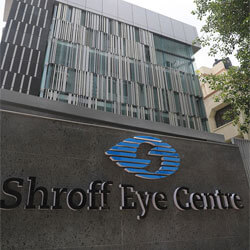
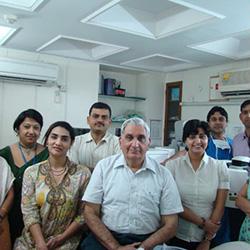

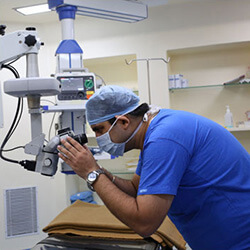

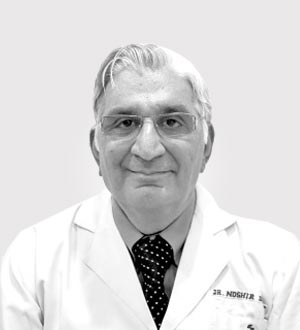



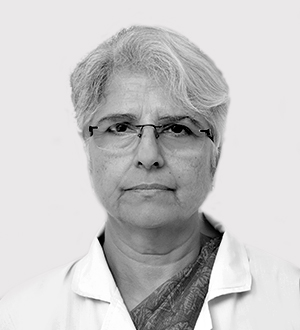











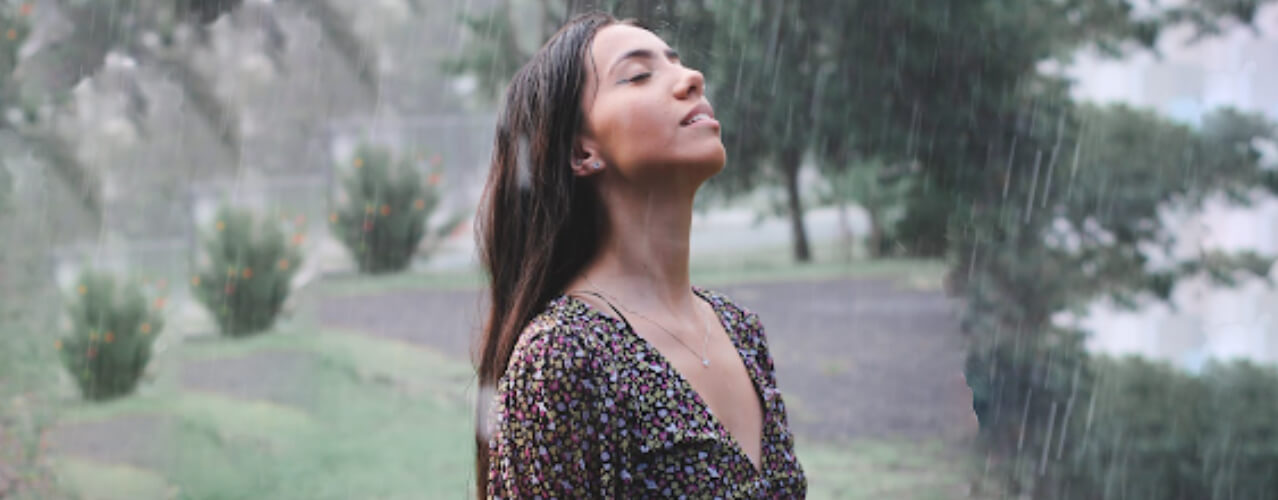

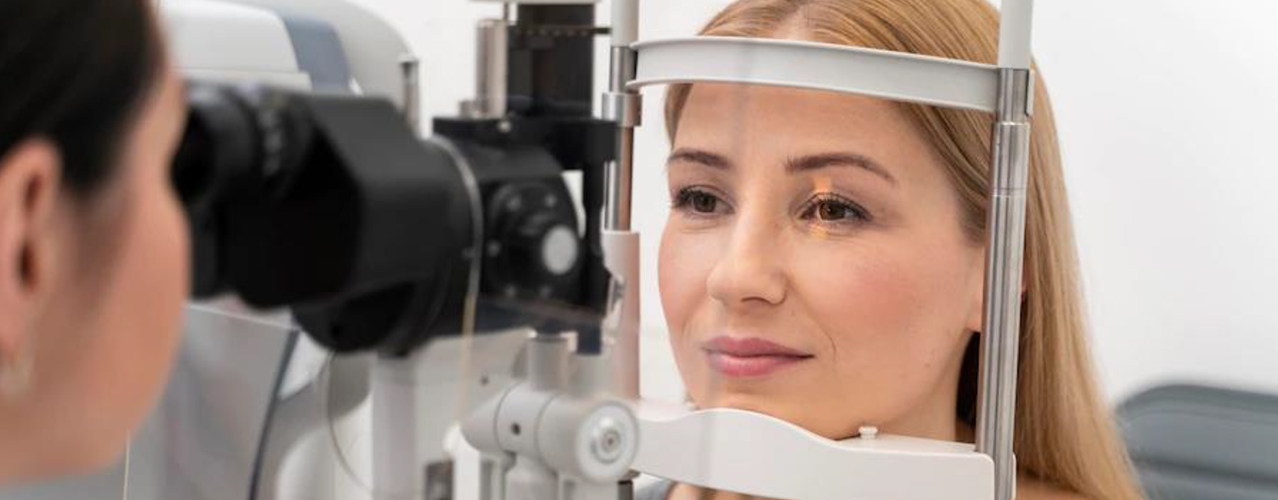

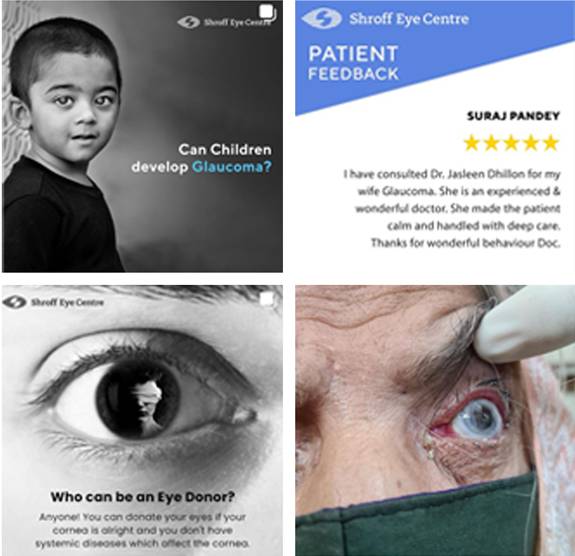
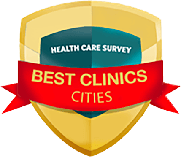
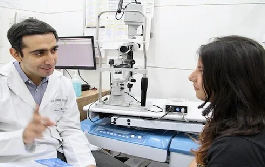




 Call Now
Call Now Book an
Book an Chat
Chat  Our
Our